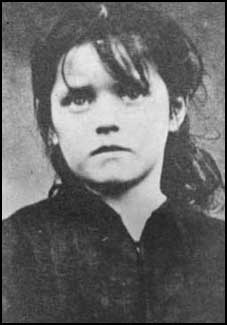ELIZABETH BENTLEY

Elizabeth Bentley was born in Leeds 1809. She began working in a flax mill at the age of six. On 4th June, 1832, Elizabeth was interviewed by Michael Sadler and his House of Commons Committee.
Question: What were your hours of labour?
Answer: As a child I worked from five in the morning till nine at night.
Question: What time was allowed for meals?
Answer: We were allowed forty minutes at noon.
Question: Had you any time to get breakfast, or drinking?
Answer: No, we got it as we could.
Question: Did you have time to eat it?
Answer: No, we were obliged to leave it or to take it home, and when we did not take it, the overlooker took it, and gave it to the pigs.
Question: Suppose you flagged a little, or were late, what would they do?
Answer: Strap us.
Question: What work did you do?
Answer: A weigher in the card-room.
Question: How long did you work there?
Answer: From half-past five, till eight at night.
Question: What is the carding-room like?
Answer: Dusty. You cannot see each other for dust.
Question: Did working in the card-room affect your health?
Answer: Yes; it was so dusty, the dust got up my lungs, and the work was so hard. I got so bad in health, that when I pulled the baskets down, I pulled my bones out of their places.
Question: You are considerably deformed in your person in consequence of this labour?
Answer: Yes, I am.
Question: At what time did it come on?
Answer: I was about thirteen years old when it began coming, and it has got worse since. When my mother died I had to look after myself.
Question: Where are you now?
Answer: In the poor house.
Question: You are utterly incapable of working in the factories?
Answer: Yes.
Question: You were willing to have worked as long as you were able, from your earliest age?
Answer: Yes.
Question: And you supported your widowed mother as long as you could?
Answer Yes.
For more details of Child Labour Reforms and interviews with children from the Mills visit: The Spartacus Internet Encyclopaedia
 To Victoriana
To Victoriana
 To Home Page
To Home Page